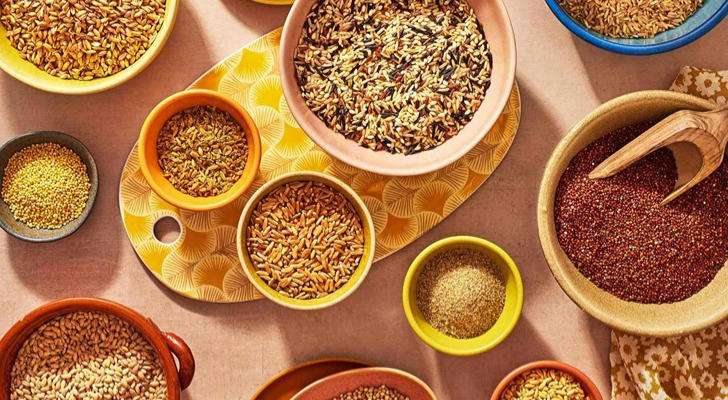Diet and Immunity: How to Boost Your Body's Resistance Through Diet
The immune system is the body's defense mechanism, primarily responsible for identifying and eliminating pathogens such as bacteria, viruses, and fungi. A robust immune system can effectively protect your body from infections and diseases.
Diet plays a crucial role in this process, as the right nutrients can support the normal functioning of your immune system. For instance, vitamins C and zinc help enhance the activity of immune cells, while probiotics promote gut health, thereby supporting immune function. A balanced diet ensures the intake of various essential nutrients and is the foundation for enhancing immunity.
1.Impact of Key Nutrients on Immunity
Vitamin C
Immune Support Function: Vitamin C enhances the immune system's capabilities by promoting the generation and function of white blood cells, helping to fend off infections.
Rich Food Sources: Citrus fruits (such as oranges, grapefruits), red peppers, strawberries, and kiwis are rich sources of vitamin C.

Vitamin D
Role in the Immune System: Vitamin D helps regulate immune responses, reduce inflammation, and support the normal functioning of the immune system.
Rich Food Sources: Sunlight is the primary source, in addition, fatty fish (such as salmon, sardines) and fortified foods (such as fortified milk and orange juice) also contain vitamin D.

Zinc
Immune Enhancement Function: Zinc is crucial for the immune system, participating in the function and production of immune cells, and supporting the ability to fight infections.
Food Sources: Nuts (such as cashews, almonds), seeds (such as pumpkin seeds), and whole grains (such as oats, whole wheat bread) are good sources of zinc.

Antioxidants
Protecting the Immune System: Antioxidants (such as vitamin E and carotenoids) neutralize free radicals, reducing oxidative stress damage to immune cells and supporting the health of the immune system.
Food Sources Rich in Antioxidants: Berries (such as blueberries, raspberries), green vegetables (such as spinach, kale) are rich sources of antioxidants.

Probiotics
Impact on Gut Health and Immunity: Probiotics help maintain a balanced gut flora, enhance the intestinal barrier function, and support the overall immune system.
Food Sources: Yogurt, fermented foods (such as pickles, miso) are good sources of probiotics.

2.The Relationship Between Eating Habits and Immunity
Maintaining a Balanced Diet
Importance: A balanced diet ensures the body gets a variety of essential nutrients, supporting the normal operation of the immune system. Nutrients such as vitamins, minerals, proteins, and healthy fats are crucial for the generation, function, and repair of immune cells.
Recommended Dietary Patterns
a. Mediterranean Diet: Rich in fruits, vegetables, whole grains, nuts, seeds, and healthy fats (such as olive oil), and includes moderate amounts of fish and poultry. This dietary pattern emphasizes fresh and natural ingredients, helping to maintain the health of the immune system.
b. Balanced Meals: Includes five major food groups (fruits, vegetables, whole grains, protein foods, and dairy), ensuring that each meal contains a variety of nutrients.
Avoiding Excessive Processed Foods
Negative Impact of Processed Foods on the Immune System: Processed foods often contain high levels of sugar, salt, saturated fats, and additives, which can cause inflammation and weaken immune function. High sugar and salt intake can affect the function of immune cells, increasing the risk of infection.
Choosing Fresh and Natural Foods: Opt for fresh fruits and vegetables, and prioritize organic or minimally processed ingredients.
Diversifying Your Diet
Importance of Diverse Diet: A diverse diet helps to intake a wide range of nutrients, such as vitamins, minerals, and antioxidants, which are key to maintaining immune system health. Different foods provide different nutrients, helping to fully support immune function.
How to Achieve a Diverse Diet: Try to include a variety of colored fruits and vegetables in each meal to ensure you get different nutrients. Regularly change the main dishes and protein sources, such as fish, beans, lean meats, and whole grains, to increase dietary diversity.
Maintaining a Healthy Weight
Impact of Weight on the Immune System: Being overweight or underweight can negatively affect the immune system. Obesity can lead to chronic inflammation, weakening immune responses. Underweight may indicate malnutrition, and the immune system lacks the necessary nutritional support.
Dietary Strategies for Healthy Weight Management: Focus on the nutritional density of food rather than just calories. Choose nutrient-dense foods (such as whole grains, lean meats, and fresh vegetables) instead of empty-calorie foods.

3.Diet Suggestions to Enhance Immunity
A.Sample Daily Meal Plan
Breakfast: Greek yogurt with mixed berries (such as blueberries, strawberries) and a handful of nuts, accompanied by a slice of whole wheat toast.
Lunch: Chicken breast salad (containing spinach, tomatoes, carrots, cucumbers, and a little olive oil) with brown rice or whole wheat bread.
Dinner: Baked salmon, paired with steamed broccoli, peppers, and a serving of quinoa.
Snacks: Apple slices with almond butter or carrot sticks with hummus.
B.Practical Daily Dietary Suggestions and Examples
Breakfast: Choose high-protein and antioxidant-rich foods, such as Greek yogurt and fresh fruits.
Lunch: Ensure it includes plenty of vegetables and quality protein to boost the immune system.
Dinner: Include foods rich in omega-3 fatty acids (such as salmon), which help with anti-inflammatory effects
Snacks: Opt for fiber-rich and healthy fat foods to maintain stable blood sugar levels.
C.Incorporating Immunity-Boosting Foods into Your Daily Diet
Add vegetables: Increase green vegetables in every meal, such as spinach, kale, etc.
Use fruits as snacks: Replace processed snacks with fresh fruits.
Choose healthy fats: Use olive oil, flaxseed oil, etc., to replace saturated fats.
Diversify protein sources: Include fish, beans, nuts, etc.

D.Diet Tips
Stay hydrated: Drinking plenty of water helps maintain bodily balance and immune health.
Reduce sugar intake: Excessive sugar can weaken immune system function.
Pay attention to post-meal rest: Avoid vigorous activities immediately after meals to aid digestion and absorption.
E.Precautions and Common Misconceptions
Over-supplementing with nutritional supplements: Excessive use of vitamins and mineral supplements can backfire; prioritize obtaining nutrients through natural foods.
Relying on a single food: Over-reliance on a single food can lead to nutritional imbalance; maintain a varied diet.
Irregular eating habits: Irregular eating can affect the normal function of the immune system; maintaining a balanced diet and regular meal habits is important.

4.Real-Life Examples
Case Study:Alex's Health Transformation Journey
Background:Alex, an office worker, frequently experienced fatigue and caught colds often due to a diet primarily consisting of fast food and takeout. His poor dietary choices were taking a toll on his immune system, leaving him susceptible to infections.
Solution-Dietary Adjustments:
Vitamin C Increase:Alex committed to incorporating more vitamin C-rich foods into his daily meals. He started his day with a glass of freshly squeezed orange juice (providing about 100 mg of vitamin C) and added a side of strawberries (offering around 50 mg) and a bell pepper salad (with approximately 95 mg) to his lunch.
Vitamin D Supplementation:Recognizing the importance of vitamin D for immune health, Alex began consuming two servings of fatty fish like salmon per week (each serving providing about 250 IU of vitamin D) and ensured 20 minutes of daily sun exposure to boost his natural vitamin D production.
Zinc Enrichment:To boost his zinc intake, Alex added a handful of almonds (offering around 2 mg of zinc) to his afternoon snack and switched to whole grain bread (providing about 0.5 mg of zinc per slice) for his sandwiches.
Probiotic Intake:
Alex incorporated a cup of probiotic-rich yogurt into his daily routine, providing him with approximately 1 billion CFUs (colony-forming units) of beneficial bacteria to support his gut health.
Results:Within a few months, Alex noticed a significant reduction in his frequency of colds, dropping from an average of 4 colds per year to just 1. His energy levels also improved, as evidenced by his increased productivity at work. He reported feeling more energized throughout the day, which he attributed to his improved diet. His overall quality of life saw a marked improvement, with better sleep and a more positive outlook.

In our busy lives, we sometimes forget how much our food matters for staying healthy. Eating a mix of good stuff like vitamins, zinc, and probiotics can make our body's defense stronger. It's also good to eat different foods, not too much junk, and keep a healthy weight. This way, we can keep our body's shield strong and live better.
